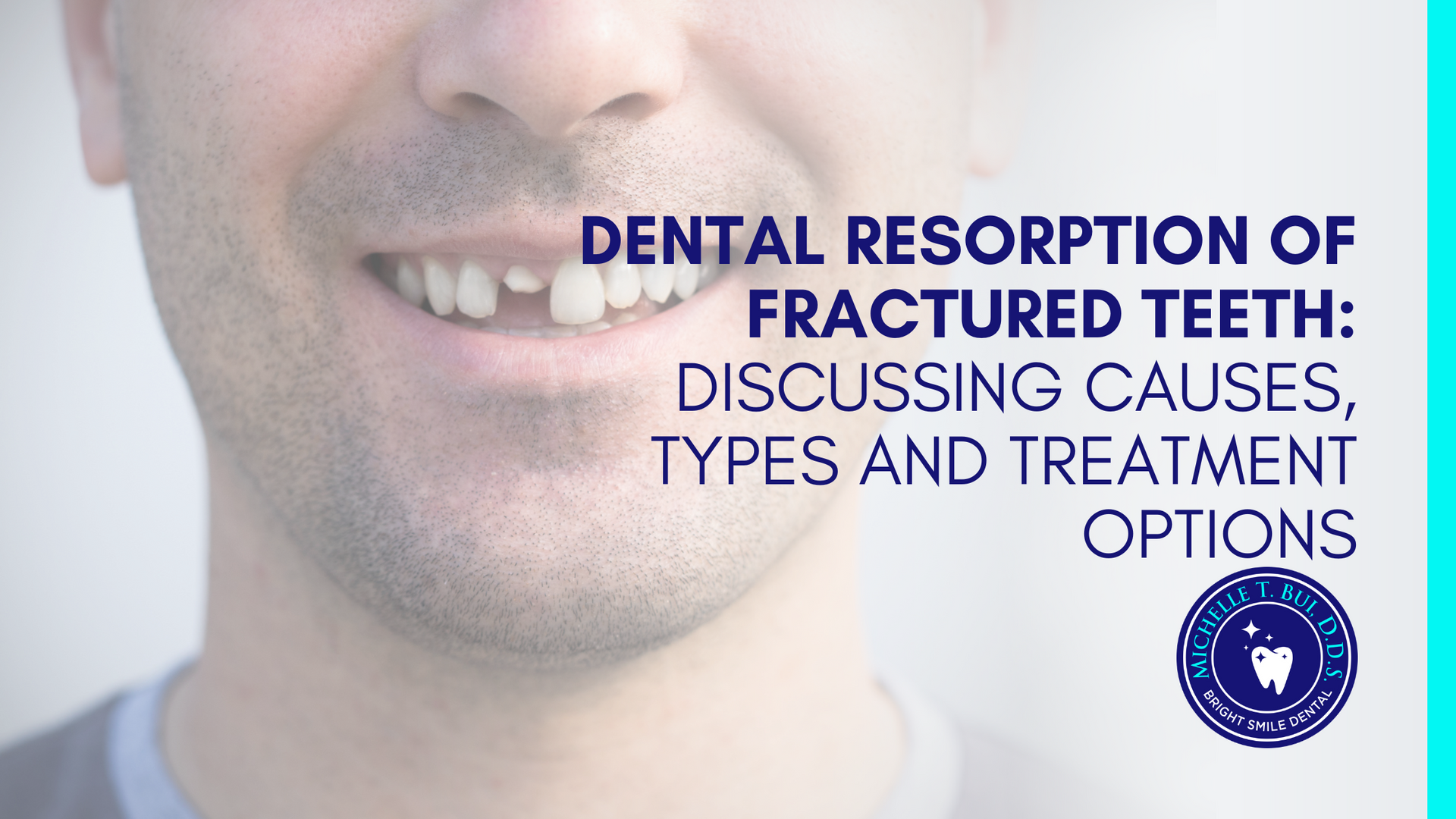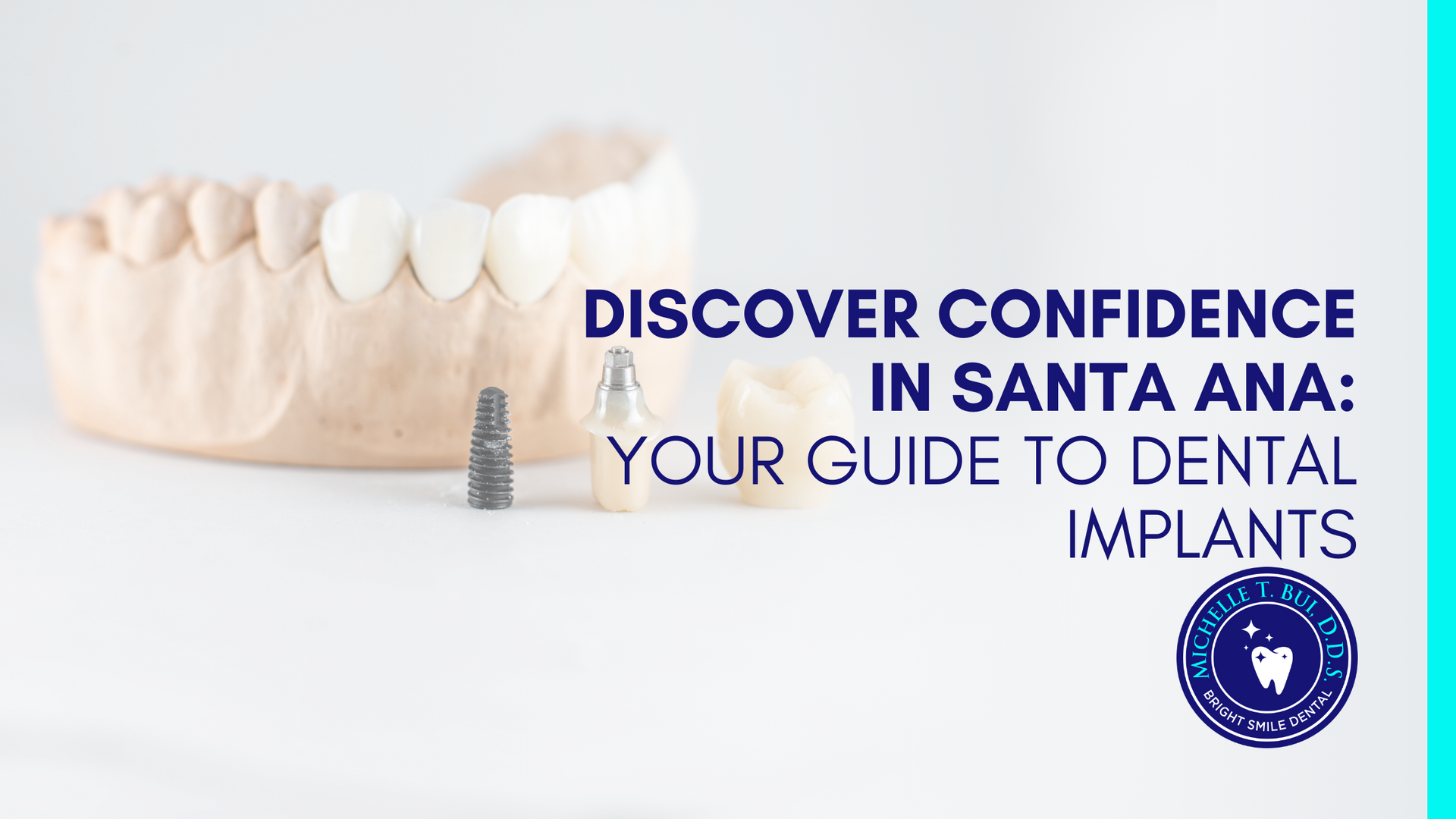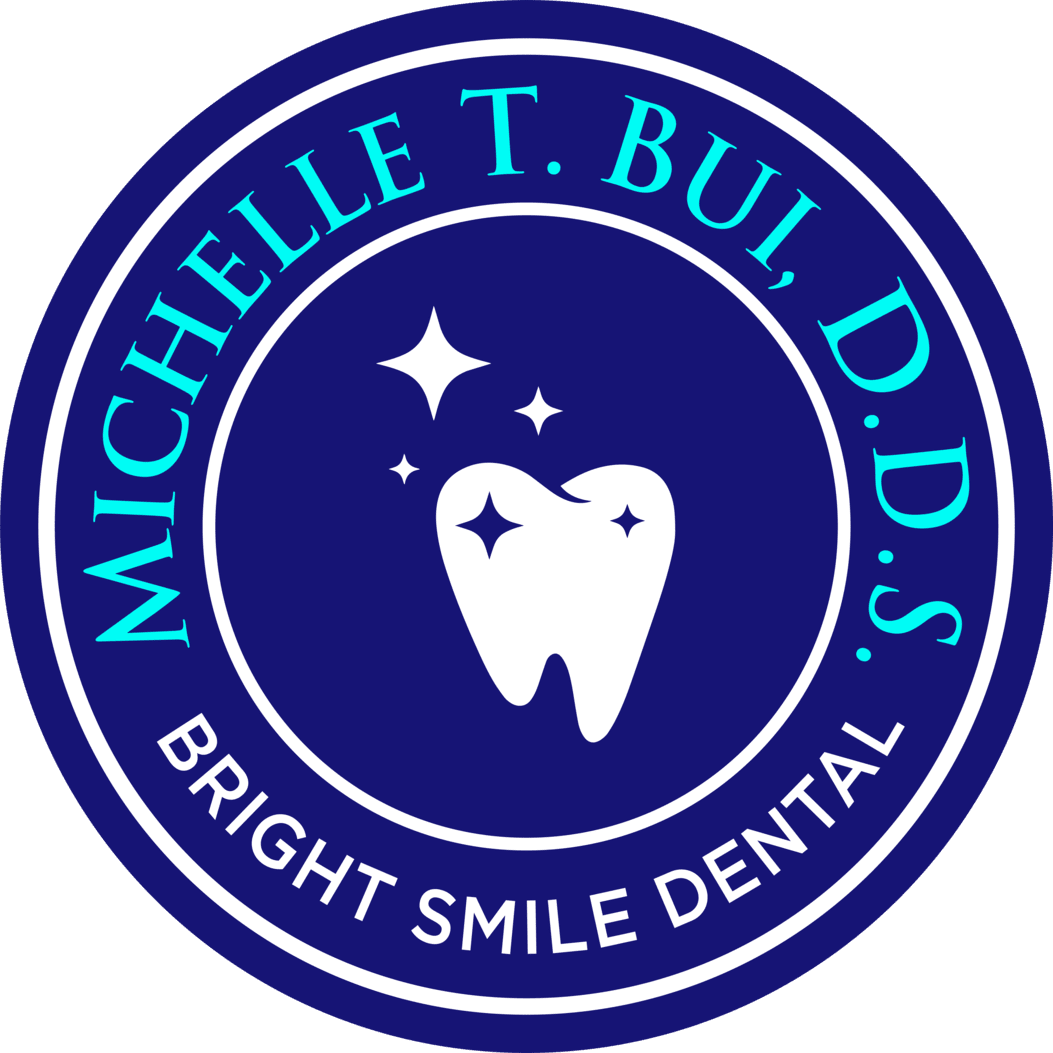INVISALIGN® SUMMER PROMO - Only $4,050 with 0% interest for up to 24 months + get a FREE Pola whitening kit. Mention Promo code "Invis-Ads-621" - Promo expires June 21, 2024 (New Cases Only) CLICK HERE TO CONTACT US ABOUT THIS SPECIAL OFFER
INVISALIGN® SUMMER PROMO - Only $4,050 with 0% interest for up to 24 months + get a FREE Pola whitening kit. Mention Promo code "Invis-Ads-621" - Promo expires June 21, 2024 (New Cases Only) CLICK HERE TO CONTACT US ABOUT THIS SPECIAL OFFER
Types Of Dentures: How to Choose Your Proper Fit

Source: Dr. Marketing
Dentures, which are removable replacements for missing teeth and surrounding tissues, can be helpful when a patient has lost one tooth, several teeth, or all of them. Generally made of nylon, acrylic, or metal, properly fitted dentures offer several advantages for those who need them, such as improved speech, better eating capabilities, and more self-confidence. Our team at Bright Smile Dental, located in Santa Ana, has summarized all the denture options that are available to patients.
Complete Dentures

Complete dentures are utilized when all your teeth are missing. They are made after the teeth have been removed and the gum tissue has started to heal. In the eight to 12 weeks following the removal of your teeth, the complete dentures can be safely placed in the mouth.
Who can get complete dentures?
Any patient who is missing all their teeth in the upper or lower arch can consider receiving complete dentures. Dental extractions might be required for other patients because complete dentures cannot be used if they have remaining teeth.
Pros of complete dentures
- No surgery is necessary: when you receive complete dentures, it consists of a simple and quick process because there is no need for surgery. This is a contrast to the dental implant procedure that would have you spend time in surgery at Bright Smile Dental to complete the treatment.
- Less costly than dental implants: since less material and time are required with complete dentures, they are a cheaper alternative to dental implants. You can speak with our dentist to determine what type of denture is most suitable for you and your budget.
- Are simple to modify: dentures are highly durable and the material is intended to work in unison with your natural teeth. Should any additional teeth be lost in the future, your current dentures can be altered to ensure that the new tooth loss does not affect your smile. Also, when an accident impacts your complete dentures, they can be replaced or repaired by scheduling an appointment with Dr. Michelle Bui.
Cons of complete dentures
- Can become loose: if a patient is lacking sufficient gums, the dentures can feel loose in their mouth and dental adhesive might be needed to stabilize them. It is the lower dentures that often experience more issues because there is no suction like what the upper dentures receive, causing them to shift in your mouth.
- Require regular cleaning & maintenance: complete dentures retain small pieces of the foods and beverages that you consume, allowing germs and bacteria to be situated between the dentures and your gums. As a result, consistent removal and cleaning are necessary to avoid the buildup of bacteria and keep your gums in a healthy state.
- Can be fragile: complete dentures can be prone to breaking down over time, but if that is the case, the team at Eagle Ridge Dentures can make the necessary repairs.
Immediate Dentures

Immediate dentures are created in advance and can be positioned into place once the natural teeth are removed. This means that the patient does not have to be void of teeth throughout the healing process.
Who can get immediate dentures?
Like complete dentures, immediate dentures can be used by any patient who is missing all the teeth in their upper or lower arch.
Pros of immediate dentures
- An instant solution: immediate dentures fill the gaps in your mouth right after a tooth extraction or full-mouth extraction has been completed.
- Protect your gums: as the healing process occurs, immediate dentures work to protect your gums and minimize any bleeding.
- Same-day placement: immediate dentures are put in on the same day that you take care of your extraction.
Cons of immediate dentures
- Might need adjusting: your immediate dentures might need to be modified or relined (having extra material added to the denture to compensate for the changes in your mouth during the healing process) to improve comfort.
- Don't always feel like natural teeth: as a temporary solution until your permanent dentures are prepared, they are not as sharp and this could make chewing more difficult for some patients.
Partial Dentures

A removable partial denture typically features replacement teeth attached to a plastic base that is pink or a gum-resembling colour. At times, the plastic base will be connected by a metal framework that holds the denture in place within the mouth.
Who can get partial dentures?
Partial dentures are used for patients who still have one or more natural teeth remaining in the upper or lower jaw.
Pros of partial dentures
- Less invasive & more affordable: partial dentures aren't as invasive as other tooth replacement options when you have multiple missing teeth in your mouth and they are available at an affordable price.
- Can accommodate additional teeth: you can have additional teeth added to the partial dentures, though that will be dependent on the type of material utilized when developing the same factors.
- Are more suitable for the lower jaw: partial dentures are a superior option to complete dentures when replacing a lost tooth in the lower jaw. This is specifically the case if some teeth can be preserved, as many patients have experienced issues getting used to complete lower dentures.
Cons of partial dentures
- Potential trauma: the abutment teeth and gums might encounter trauma because of the pressure and movement created by the partial dentures in your mouth. Losing an abutment tooth might even require you to get a new partial.
- Less functionality: partial dentures might not function with the same reliability as a dental implant or a fixed bridge.
- Cleaning & removal: needing to be removed at night, partial dentures can increase the buildup of plaque around the abutment teeth, so you must constantly clean them.
Denture Implants

Denture implants are replacement tooth roots intended to provide a sturdy foundation for permanent or removable replacement teeth that are created to match your natural teeth.
Who can get denture implants?
Any patient healthy enough to undergo a regular dental extraction or oral surgery can be a candidate for denture implants. We recommend that you have healthy gums and sufficient bone to support the implant, while also maintaining great oral hygiene.
Pros of denture implants
- Better appearance: denture implants look and feel like your natural teeth because they are designed to fuse with the bone, becoming permanent.
- Improved speech: unlike dentures that can move around in your mouth, denture implants are certain to have you speaking comfortably and without the concern that your teeth might slip unexpectedly.
- Easier for eating purposes: other dentures can lead to chewing struggles, but denture implants work like your natural teeth and allow you to eat comfortably.
Cons of denture implants
- Risk factor: while the denture implant is secured to the bone, there is a chance of infection occurring within your gums. Bacteria can reach the implant site and cause peri-implantitis, an infection that can produce bone loss.
- Lengthy process: getting denture implants is a process that often takes several months to complete. First, the anchor is secured to the jawbone and then, the bone must fuse to the implant before installing a new tooth. After six months of necessary healing time for the bone, your dentist attaches the new tooth.
- Might require additional work: denture implants consist of a complex process, which might demand additional work in the future. For example, if the jawbone is found to be weak and incapable of supporting the titanium implant, your dentist will have to perform a bone graft (a unique material replaces the compromised bone).

Although dentures have a few great benefits for patients, it is vital that you first understand what each option offers and the potential drawbacks. Contact our team at Bright Smiles Dental or visit us at our Santa Ana, California office, where one of our denture specialists can further clarify what dentures can achieve for your oral health.


We are the local Santa Ana dentist near you!
It’s Your Smile, Let Us Help You Make It Your Best
Request A Dental Appointment
We look forward to seeing you soon!
Please note, we will do our best to accommodate your schedule.
Regarding insurance, we accept almost all PPO insurances and are in-network for most plans. As a courtesy to all of our patients (in/out of network), we take care of the claim filing and processing. At this time, we do not accept HMO or Medicaid, however, we do offer dental financing through CareCredit.
Thank you so much for contacting our dental practice. While we strive to respond to all inquiries right away, we may be away from the desk helping a patient or out of the office. We will do our best to reach back to you shortly.
Please note, if this is a dental emergency, it would be best to call our practice as this is the fastest way to reach us (714) 775-0202.
Please try again later
Santa Ana Dentist
We understand that trying to find a nearby dentist you can trust is difficult, that is why we make it easy for you to work with us.
(714) 775-0202
Helpful Links
Dental Practice Hours
- Monday
- -
- Tuesday
- -
- Wednesday
- -
- Thursday
- -
- Friday
- -
- Saturday
- Closed
- Sunday
- Closed
All Rights Reserved | Bright Smile Dental
All Rights Reserved | Bright Smile Dental
Dentist Website Diagnosed, Treated, and Cured by Dr. Marketing Inc

